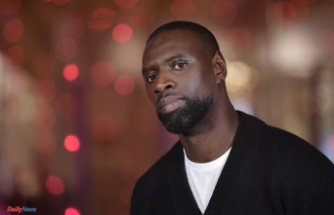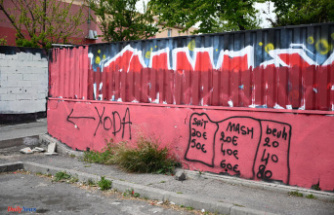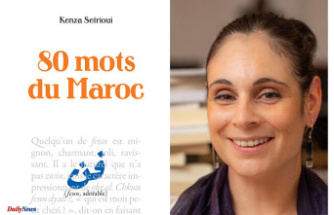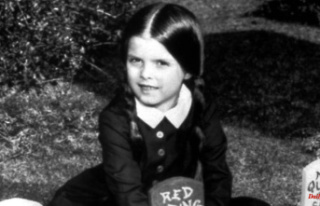In the 1970s, a young single mother put her five-year-old son up for adoption in a newspaper advertisement: "Which child-loving woman or couple takes a five-year-old boy into foster care?" Eleven words that will change Ralf Lengen's life forever.
Ralf Lengen's brother's thumb can be stretched backwards. Ralf's father's thumb also had this special property. At the breakfast table in the Lengen household, this resemblance was often a source of joy. Only Ralf's thumb always remained stiff and could not be bent backwards.
Lengen is adopted. When he was five years old, his mother placed him in foster care through a newspaper advertisement. She was 29 at the time, had three children and was just divorced. She can no longer cope with her life as a young, single mother. So one day she writes the line "Which child-loving woman or couple takes care of a five-year-old boy?" and send it to the local newspaper. There are eleven words that will change Ralf Lengen's life forever.
Twelve people signed up. "You could throw away two thirds of it right away," says Lengen's biological mother Sabine many years later. "They only had financial interests." Three letters are shortlisted, writes the 54-year-old in his new book "Entered into new life!". The Lengen family also answered. And so Ralf ends up in his new family.
He grew up 60 kilometers away from Sabine and his two biological siblings and is in regular contact with them. And so he can always compare how it could have been for him. When Lengen thinks about it today, he has it better in his life than his siblings. His parents are there for him more than Sabine can be. "When I came home from school, I was greeted by Mama," Lengen writes in his book. "I grew up with a father, my two siblings didn't."
What Lengen doesn't have, however, is life with his biological family, with his "first" mother, as he sometimes writes in the book - although he doesn't particularly like the term, because then there would inevitably be a "second" mother. He has a life in which he has to deal with such questions at all; in which he constantly has to explain why he looks different from his Lengen siblings; in which he feels left out because of little things like the elasticity of the thumb. And he has a life from which he is first shut out before he gets to that better life.
That has occupied him all his life. Even Lengen, who has a successful history of adoption, still feels the break with his first family today. "You never forget that," he says.
This exclusion from the "first" family is something that worries many children who are adopted, Lengen says. This is also shown by the hundreds of quotations that Lengen has collected from literature and research from all over the world and placed on the pages of the book. He quotes Nancy Newton Verrier, mother of an adopted daughter and a biological daughter, as saying: "This abandoned baby lives in every adoptee and in every adoptee throughout life." Frank Salamone, himself an adopted child, writes, "'Hello' to one family means 'goodbye' to the other."
"That's adoption," explains Lengen. "Acceptance and before exclusion." Everyone wants to see the second part: the beautiful story of how Ralf became a Lengen. "What most don't want to see is the kick," he says.
A kick that will stay with him throughout his life and prompted him to write a book about adoption from a child's perspective. Because as nice as adoption can be, that kick is always a compelling part of the story, he explains. "Being excluded from the first family system always has something to do with pain." No matter how nice it ends up being in the adoptive family. "I can't imagine that someone can easily put up with something like that," he explains in an interview with ntv.de.
But that is exactly what is expected. Even a good friend advised him in the chapter entitled "Exclusion" not to present himself as a victim. After all, he's not the only one having a hard time in life. "Sure, everyone has their destiny," says Lengen. "But what makes me angry and sad is that most adoptees are denied the right to mourn."
The suffering of the child is often denied. Even the adoptive parents would often not allow their child to struggle with being excluded from the first family many years later. Parents' own fears that the adopted child will not feel completely at home or that they will eventually return to the first family is often too great to allow the child to grieve. "And that's an own goal," explains Lengen. Because if the parents deny their child's suffering, it cannot be healed and there is something between them.
Lengen himself needed decades to admit his pain. Today he even shows understanding for the difficult decision made by his first mother. "Who am I to judge my mother?" he says. His mother Sabine also recognized the difficult situation she was putting her son in with this decision. "I didn't have the foresight then. I was just looking at the present. I had no idea what it would all entail. You've been through a lot. I'm very sorry," she writes in the book's foreword.












